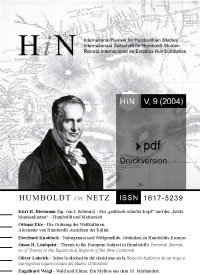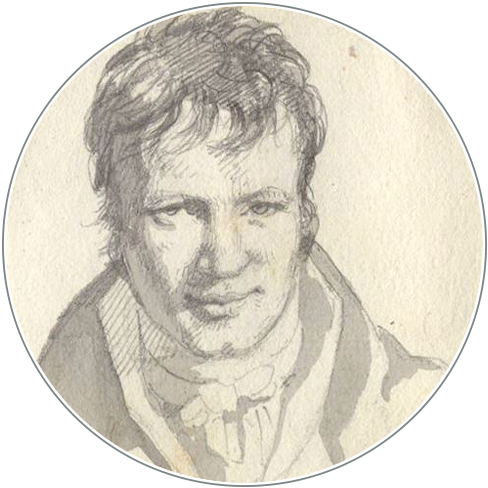“Under the influence of an exotic nature...national remembrances are insensibly effaced”: Threats to the European Subject in Humboldt’s <i>Personal Narrative of Travels to the Equinoctial Regions of the New Continent</i>
DOI:
https://doi.org/10.18443/52Palabras clave:
1799-1804, Europa, Relation historiqueResumen
Abstract
My essay attends to a number of passages in Alexander von Humboldt’s Personal Narrative in which the Prussian explorer expresses anxiety about the apparent dangers posed by the overwhelmingly productive tropical landscapes he observes. In these passages, the excesses of an “exotic nature” threaten European identity and modes of civilization—and they trouble the accuracy of Humboldt’s own observational project. I also explore Humboldt’s related worry that South American vegetable (and visual) overload will exert a destabilizing effect on his aesthetic sensibility, disrupting his ability to represent the “New Continent” accurately in writing. Finally, I sketch the influence of Humboldt’s representations of tropical excess on nineteenth-century British cultural thought and literary practice. Studying the instabilities experienced by Personal Narrative’s expatriates and colonists promises to draw out important tensions latent in Humboldt’s treatment of tropical landscape and to illuminate broader epistemological and aesthetic shifts being worked out during the period.
Descargas
Cómo citar
Número
Sección
Licencia
Derechos de autor 2004 Jason H. Lindquist

Esta obra está bajo una licencia internacional Creative Commons Atribución-NoComercial 4.0.
Los derechos de los artículos enviados permanecen en manos de los/as autores/as y se publican bajo una licencia CC (CC BY-NC 4.0). Todos los/as autores/as que publican en HiN aceptan este modelo de licencias.
Es responsabilidad de los/as autores/as obtener la autorización necesaria para la publicación de imágenes.
Los derechos del Diseño de Impresión y el diseño de la revista no son transferibles y no pueden reutilizarse de ningún modo para otras publicaciones sin previa aprobación de HiN.









